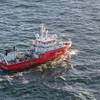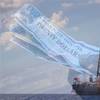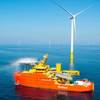DNV to Publish New Offshore Rules and Standards in July
Classification society DNV said it is set to publish its new set of rules and standards for the offshore industry.
The new rules, which cover several segments, including underwater systems and installations, offshore units, diving systems, structural design, and drilling systems, will be published in July and enter into force on January 1, 2025. They have been developed with extensive industry feedback, undergoing an external hearing process before their publication and entry into force.
“The offshore sector is one of the most innovative in the world,” said Torgeir Sterri, Director of Offshore Classification, at DNV. “For DNV this means we constantly have to be looking ahead to where our partners are moving, finding the areas where they need a platform to help unlock the next generation of technologies and helping to enable these with well-tested rules and standardized processes.”
Among highlights from the new rules and standards, DNV said it has added a new service notation for floating spaceports, which covers the requirements for units and installations intended for launch and/or recovery of spacecraft.
In addition, a significant update to the diving systems standard (DNV-OS-E402) will simplify its use and align it with the IMO diving code, while rules covering remotely operated and autonomous underwater systems have been consolidated. Structural design standards (DNV-OS-C101, DNV-OS-C102, DNV-OS-C103 and DNV-OS-C104) have been reworked to enhance ease of use and clarity, a cyber secure notation has been added as mandatory for offshore units in line with the IACS unified requirements, and there will be new fish welfare and ocean health class notations for floating fish farms.
“At DNV we are always trying to make sure not only that the rule set remains up to date but that we are continually making it easier to work with,” Sterri said. “This is why we invest so heavily in digital tools so that there are smooth processes for designers and yards, but also why we work on optimizing the structure of the rules themselves. With every revision we are eliminating redundancies, incorporating and aligning with the latest mandatory requirements, and providing our customers a resource that delivers the efficiency, security, and quality they expect.”














